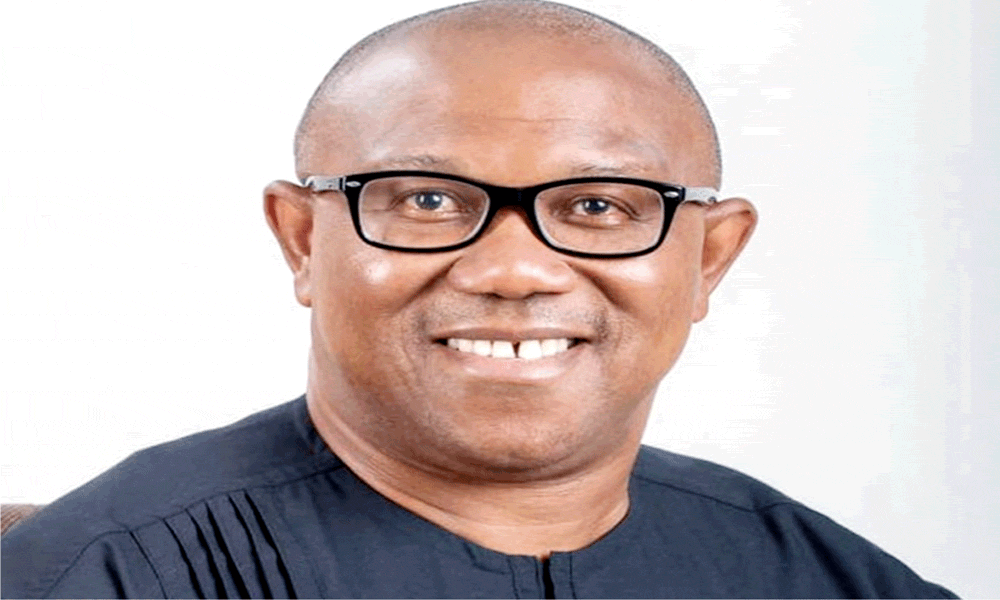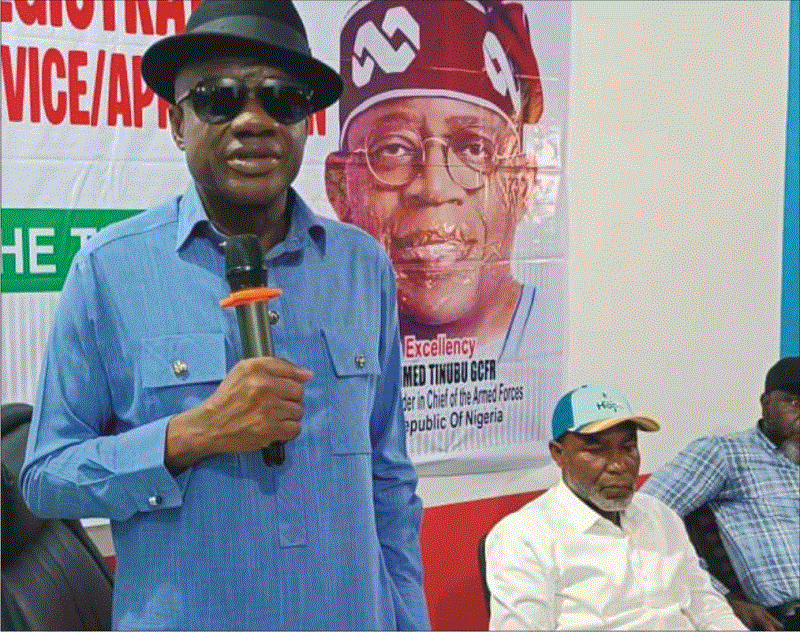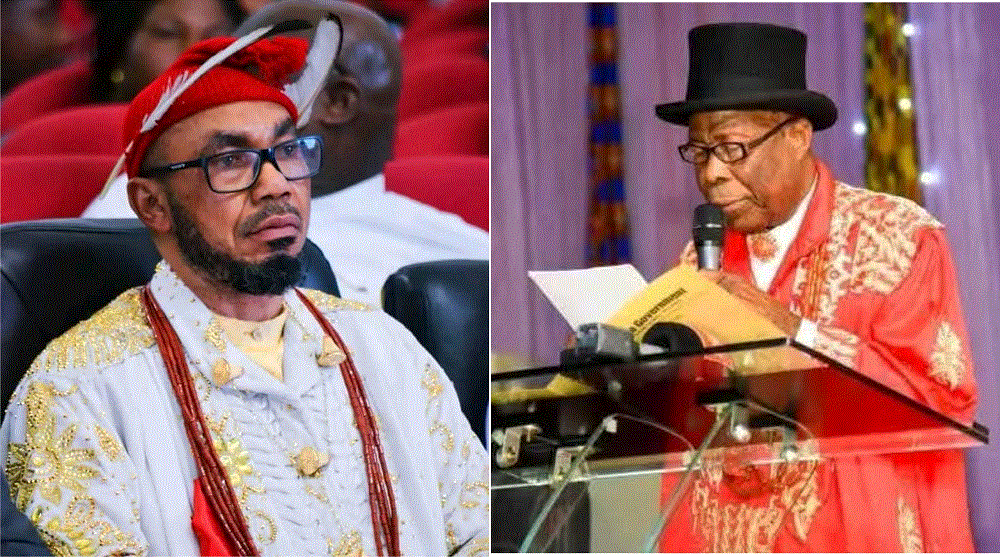ADC Membership: Peter Obi Triggers Mass Exodus Of Politicians In Other Parties

A galaxy of political leaders across parties joined 2023 Labour Party Presidential Candidate, Mr. Peter Obi, earlier today, Wednesday, December 31, 2025, as he reaffirmed his membership of the national coalition under the African Democratic Congress (ADC).
The event also attracted a wide array of statesmen, and movement representatives. Among those present were former Senate President David Mark; Chief Simeon Okeke; former governors Achike Udenwa and Sam Egwu; Okwesilieze Nwodo; Senator Aminu Tambuwal; High Chief Ben Obi; Emeka Ihedioha; Senator Enyinnaya Abaribe; Professor Oserheimen Osunbor; Sen. Victor Umeh; ADC Founder, Chief Ralph Nwosu; former Minister, Dr. Josephine Anenih; Sen. Tony Nwoye; Hon. Afam Ogene; Sen. Gilbert Nnaji; Chief Onyema Ugochukwu; Prof.Osita Ogbu; Hon. Idu Emeka; Hon. Peter Aniekwe; Hon. Oby Orogbu; Hon. Nonso Smart; and Barrister Chinedu Idigo.
Others included Prof Chinyere Stella Okunna, Chief Fidel Okafor, Hon. Barr. Joe-Martins Uzodike, Prof. Patrick Obi, Hon. Onyeanwuna Ezeani and Prof. Pat Utomi, as well as representatives of the Obidient Movement, led by Dr. Yunusa Tanko, among many others that spilled outside the hall. Their presence underscored the broad-based nature of the coalition and the growing national consensus around Peter Obi’s leadership and the ADC-led movement for democratic renewal.
The historic gathering, which took place at Nike Lake Hotel, Enugu, was anchored by Sen. Victor Umeh, who masterfully explained the purpose and import of the gathering, with Chief Simeon Okeke serving as chairman. Chief Okeke highlighted Enugu’s historical significance as the capital of the old Eastern Region, calling on Igbos to ensure that the message of unity and progress was carried forward.
In his speech, Obi told the gathering that Nigeria had reached a defining moment that required clarity of purpose, courage, and decisive collective action. He said that as 2025 comes to a close, the country must embark on a new struggle for true independence, founded on self-determination, human equality, and national reunification. He criticized a small political elite for capturing state institutions and diverting them from serving the Nigerian people, noting that many former beneficiaries of democratic governance had become complicit in electoral injustice and the erosion of democratic norms.
He warned that any attempts to manipulate or rig future elections would be resisted through lawful and legitimate means, stressing that the will of the Nigerian people is sacrosanct and non-negotiable. Obi called for urgent reforms of the electoral process, including strengthening the Independent National Electoral Commission (INEC), strict adherence to electoral laws, transparent transmission of results, and credible elections in 2027 as critical steps toward restoring public trust and responsive governance.
Describing Nigeria as a nation in grave distress, Obi cited widespread poverty, youth unemployment, insecurity, and deepening disunity as evidence of governance failure. He noted that over 130 million Nigerians live in multidimensional poverty, while millions of young people remain unemployed, fueling frustration and despair. Despite these challenges, he remained optimistic that Nigeria could be transformed into a functional, productive, and inclusive nation.
Obi argued that Nigeria’s fundamental problem is not a lack of human or natural resources but a failure of leadership and unity. He condemned a political class that thrives on division, rewards mediocrity, and feeds on corruption, stressing that ordinary Nigerians are neither lazy nor incompetent but constrained by a system rigged against merit and hard work. Drawing comparisons with Rwanda and Indonesia, he highlighted how nations with fewer resources had achieved remarkable socio-economic progress through honest leadership, national consensus, and effective resource management.
Obi also criticized current fiscal policies, particularly ongoing controversies surrounding tax laws, arguing that taxation should enrich citizens rather than deepen poverty. He warned that taxing poverty undermines national unity and fails to create wealth for the people.
The gathering witnessed a strong show of support from political and community leaders. High Chief Ben Obi emphasized that extensive consultations across the country had revealed the urgent need for credible leadership, describing the formation of a new Igbo political block as a patriotic mission to rescue the nation from callous leaders.
Victor Umeh announced that all Labour Party members, including Obi, had formally resigned to join the ADC.
Emeka Ihedioha moved a motion for all National Assembly members present to follow Obi into the ADC, seconded unanimously by Prof. Osita Ogbu.
Sen. Enyinnaya Abaribe there and then announced his resignation from APGA, pledging loyalty to Obi, while Aisha Yusuf declared her intention to become a card-carrying member of the ADC for the first time, inspired by Obi’s leadership.
Chief Onyema Ugochukwu, who was present, expressed his desire that Mr. Peter Obi become the presidential candidate of the ADC. “I am one of the old men who feel it is time to give room to younger people,” he said.
Many people representing various groups also spoke. The youth leader, Chinonso Obasi, added: “Today is a day that the Lord has made. With the youth actively involved, the movement will be essentially driven by young Nigerians.”
Speaking on behalf of women, Josephine Anenih emphasised that leadership vacancies in Aso Rock would soon open and that Peter Obi was best placed to occupy them.
Former Senate President H.E. Sen. David Mark, and Chairman of the ADC, highlighted the party’s founding principles of equality, justice, and progressiveness, praising the South-East’s support and pledging that the party would uphold internal democracy, respect its members, create jobs, and provide productive and inclusive leadership.
The event marked a decisive step toward national unity and transformation, with all speakers referring to Obi as their leader. Former governors, legislators, and community leaders publicly pledged their support, signaling a unified front to rescue Nigeria from ineffective governance and promote credible, youth-driven leadership.




